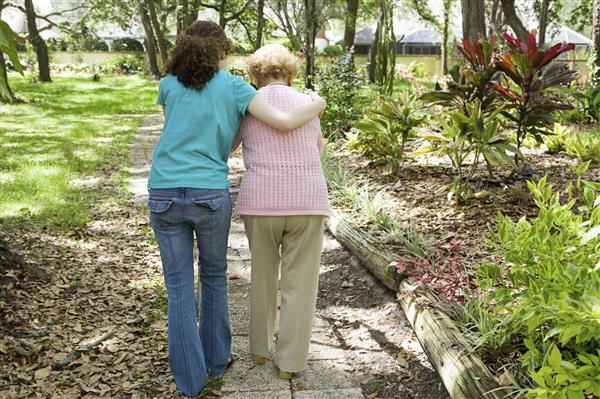Life was going along swimmingly. Your kids were growing, fast and healthy. Your partner was action, incorporated. Your parents seemed unusually fit, for folks their age. Then, it happened.
Out of the blue, that important person in your life had an accident, a stroke, a calamity… A need had arisen. Or, maybe it didn’t happen overnight. Maybe, the need had always been there, from day one? Maybe, it had gradually developed over time?
Whatever. Something needed to be done. You became a caregiver.
Family Caregivers Network
In Victoria (like Canada as a whole), nearly 3 in 10 people are family caregivers; someone who is providing eldercare to a parent, caregiving a spouse or partner or providing care to another adult family member or friend. The person being cared for might be elderly, in poor health or disabled. They might be living in their own home, with you or in a care facility.
For the most part caregivers are invisible. They’re on their own, with little support. That’s not good. That’s why, in British Columbia, the Family Caregivers Network Society (FCNS) exists; to support family caregivers. To care for the caregiver.
I’ve experienced the family caregiver role enough to know that it’s demanding. It’s also hugely important, both for the person being cared for, and to society-at-large. Though, I’m not currently a family caregiver, I have been. In a modest way, I was a caregiver to my parents, in their later years. My empathy for caregivers has only grown since then.
(In the U.S., November is National Family Caregivers month; appropriate, given it’s also the month of Thanksgiving.)
Facilitating a family caregivers support group
Over the last year, through FCNS, I’ve volunteered as a facilitator of a family caregiver support group, here in Victoria. During my own time as a family caregiver, I was never part of any type of caregiver support group. My experiences with FCNS lead me to believe that I missed out, big time, on that front.
The support group format; gathering in a circle (or around a table), creating a safe and welcoming space, inviting voice and story, sharing, encouraging, etc., works.
No matter who shows up at each monthly get-together, and for whatever reason; e.g., to offload a burden, get advice, socialize… the power is in the group. The group offers active listening, experience and knowledge, support, friendship…
Initially, I was fortunate to learn about family caregiver support group dynamics as a co-faciliator, working with another facilitator; someone with a serious history of caregiver support group facilitation. Mentor and mentee.
Further reflections
As a facilitator, I don’t need to have the answers. I can let go. The group has the answers. Peer support. You are not alone. Community. Collaboration.
Mentorship is a good thing. I serve as a mentor in a variety of contexts. In others, I am being mentored. We learn from each other.
In a world of forever change, support groups and mentoring are adaptation necessities.
What have you learned from being involved in a support group?
PS. FCNS accomplishes much with few resources. FCNS is a recognized charitable organization. #JustSaying. 🙂
Photo: Rosie O’Beirne (Flickr)


Ben, you are a gem. You have many talents and on behalf of FCNS I thank you for sharing so many of them to support family caregivers. Great post!
Hoot! Thanks, Barb. It is a pleasure to be associated with such a great cause.